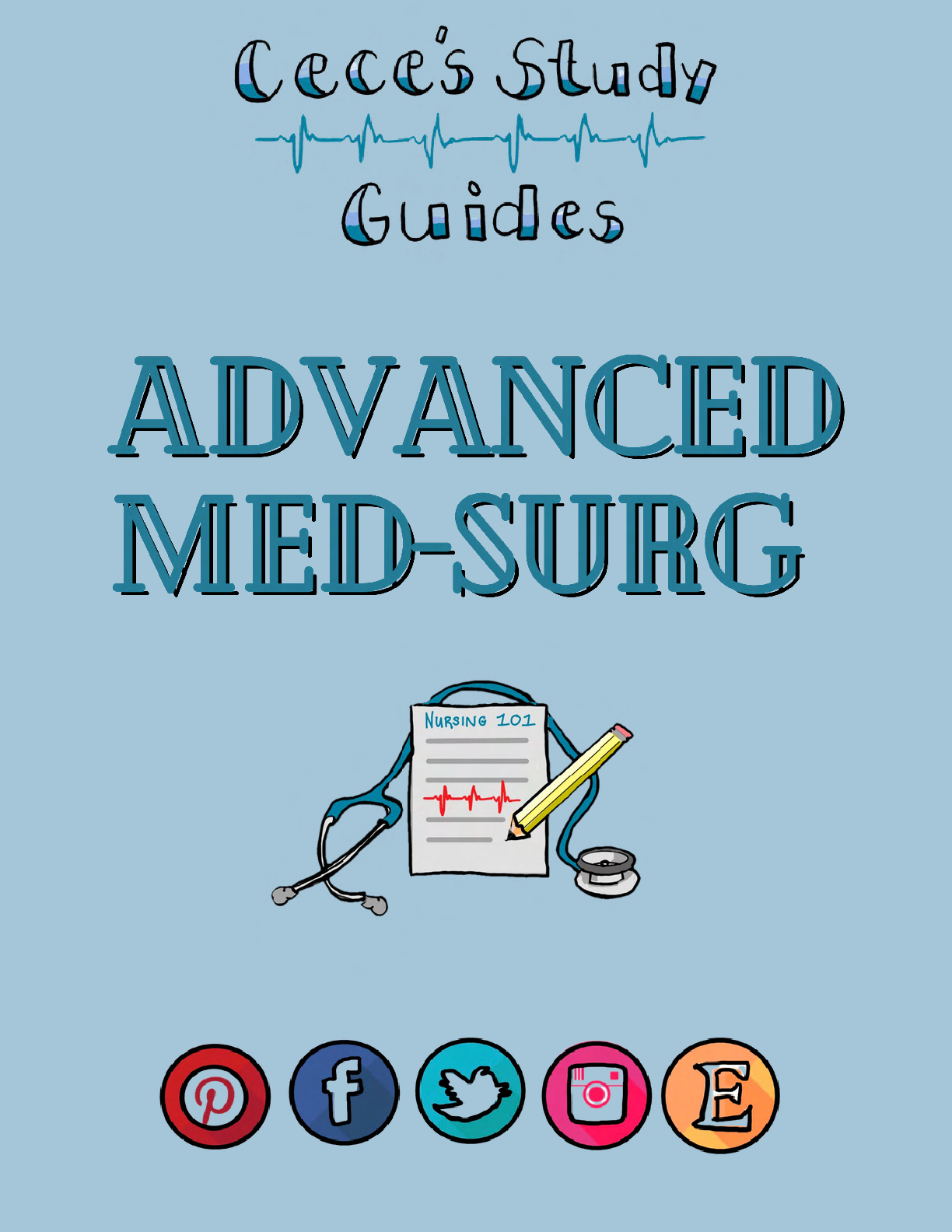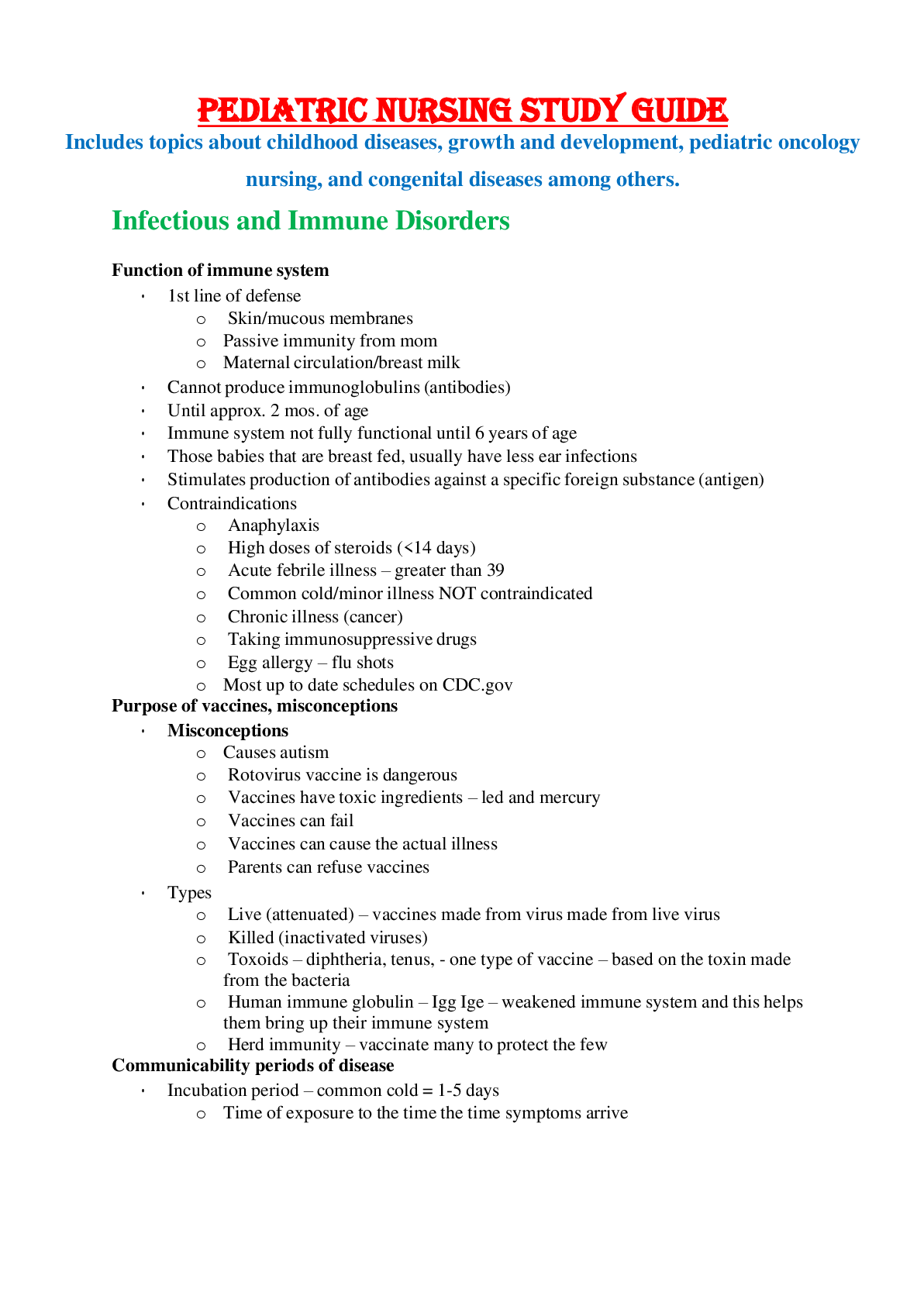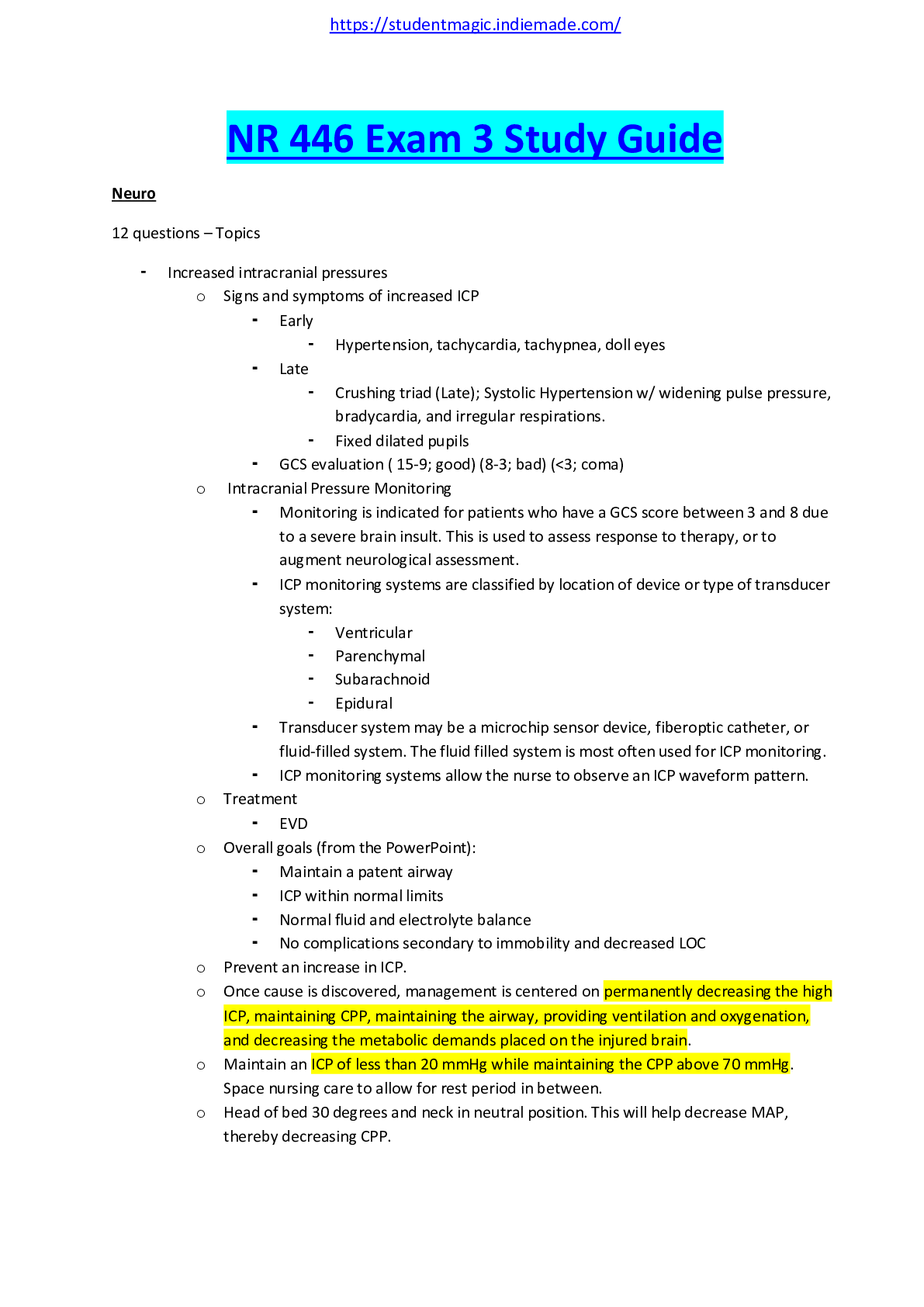*NURSING > STUDY GUIDE > NR565 Week 2 Exam Study Guide (All)
NR565 Week 2 Exam Study Guide
Document Content and Description Below
Chapter 1: The Role of the Nurse Practitioner as Prescriber Roles and responsibilities of APRN prescribers • The responsibility for the final decision on which drug to use and how to use it is... in the hands of the APRN prescriber. • The degree of autonomy in this role and the breadth of drugs that can be prescribed vary from state to state based on the nurse practice act of that state. • All states have title protection for NPs. • Only Oregon has mandated third-party reimbursement parity for NP services. • In all but five states, the control of practice and licensure is within the sole authority of the state's board of nursing. These five states have joint control in the board of nursing and the board of medicine. • Scope of practice is determined by the individual NP's license under the nurse practice act of the licensing jurisdiction. Some have a graduated scope based on experience level. New prescribers need to understand that their employment sites may restrict this legal scope of practice but cannot extend it. • In 17 states and the District of Columbia, NPs have independent scope of practice and prescriptive authority without a requirement or attestation for physician collaboration, consultation, delegation, or supervision. • Six states have full autonomous practice and prescriptive authority following a period of postlicensure/postcertification supervision or collaboration. Clinical judgement in prescribing • Prescribing a drug results from clinical judgment based on a thorough assessment of the patient and the patient's environment, the determination of medical and nursing diagnoses, a review of potential alternative therapies, and specific knowledge about the drug chosen and the disease process it is designed to treat. In general, the best therapy is the least invasive, least expensive, and least likely to cause adverse reactions. Frequently, the best choice is to have lifestyle, nonpharmacological, and pharmacological therapies working together. When the choice of treatment options is a drug, several questions arise. • As APRNs prescribe a drug for a given pathophysiology, their nursing background leads them to place equal emphasis on understanding the impact the drug will have on the patient. • Patient education is a central focus of nursing and APRN practice. • Knowledge and clinical experience shared from the mingling of medical and nursing perspectives are mutually beneficial to the providers and the patient. • The APRN can benefit from the in-depth knowledge about the drugs in the physician's specialty area. The physician can benefit from APRNs’ focus on the impact of the drug on the patient and from their patient education skills. In the age of health-care reform, increasing emphasis is being placed on these latter issues. Collaboration with other providers • NPs and physicians do work together very effectively on an individual basis and in collegial care teams. In an era of health-care reform, our joint concerns about patient care decisions require us to be allies. • Physicians may offer insight or advice on pharmacological management from their experience. • A physician's expertise related to pharmacology is based on understanding biochemistry and prescribing for a given pathophysiology. The emphasis is on the disease and the drug, with less emphasis on the impact on the patient. Patient education by physicians may be limited or left to a nurse or pharmacist. • Collaboration with other NPs and APRNs who have prescriptive privileges has two major advantages. o On a one-to-one basis dealing with individual patient issues, NPs and APRNs can share “clinical pearls” from their knowledge base and collaborate to improve the care of the patient. o Collaboration on issues related to scope of practice and prescriptive privilege at the state and national level is critical to obtaining and maintaining the autonomy of practice needed to provide optimal patient care. • Collaboration with pharmacists requires an understanding of the educational preparation for and evolution of the role of the pharmacist. The profession of pharmacy requires graduate-level preparation for all pharmacists with the granting of a practice doctorate, the Doctor of Pharmacy (PharmD). PharmDs have extensive knowledge about pathophysiology and take an active role in determining the best drug to prescribe. A PharmD can assist by offering expertise on the clinical management of patients, including available dosage forms, potential adverse reactions, and drug interactions. • Both physicians and APRNs increasingly consult PharmDs for their knowledge of pharmacokinetics and pharmcotherapeutics when prescribing for complex patients. [Show More]
Last updated: 1 year ago
Preview 1 out of 34 pages
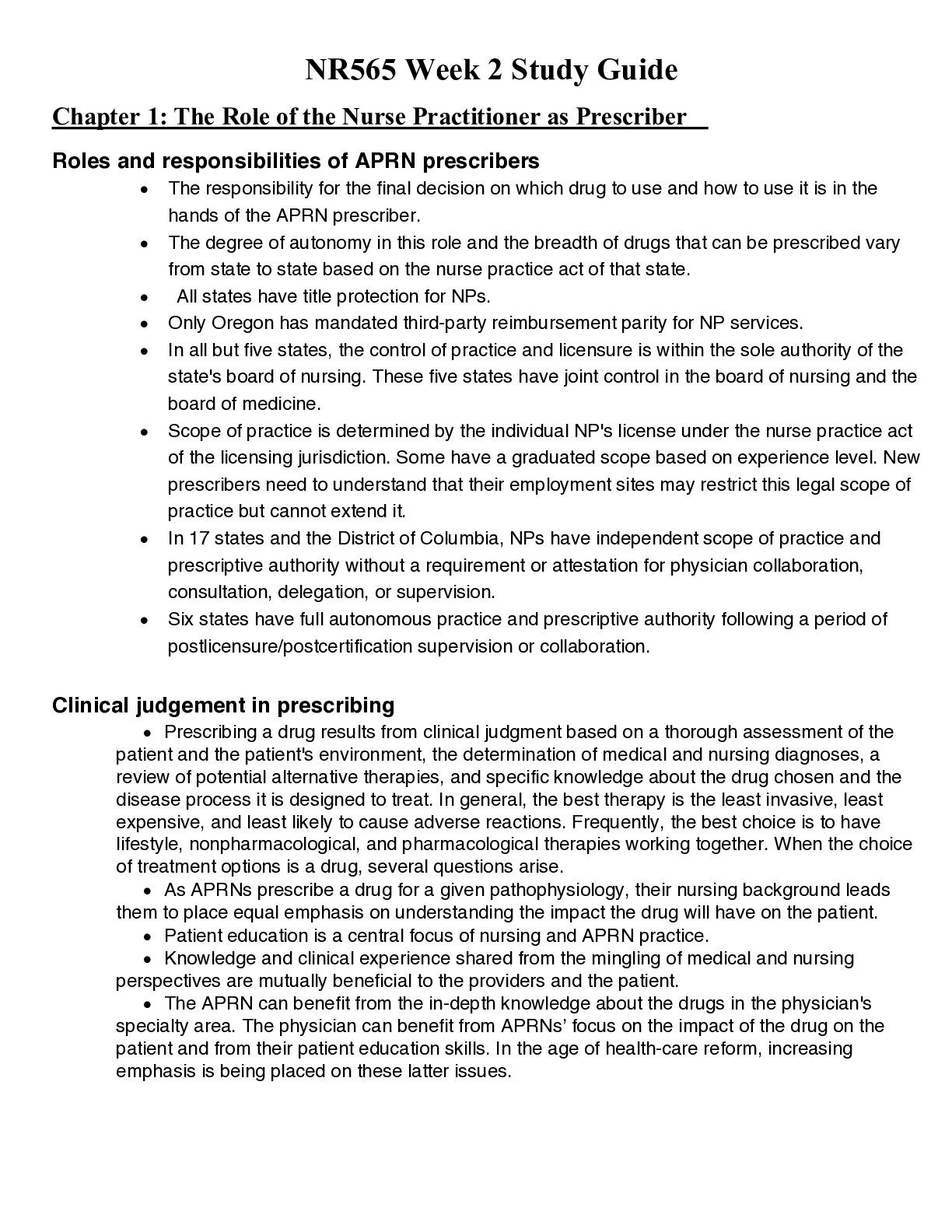
Reviews( 0 )
Document information
Connected school, study & course
About the document
Uploaded On
Aug 03, 2021
Number of pages
34
Written in
Additional information
This document has been written for:
Uploaded
Aug 03, 2021
Downloads
0
Views
44

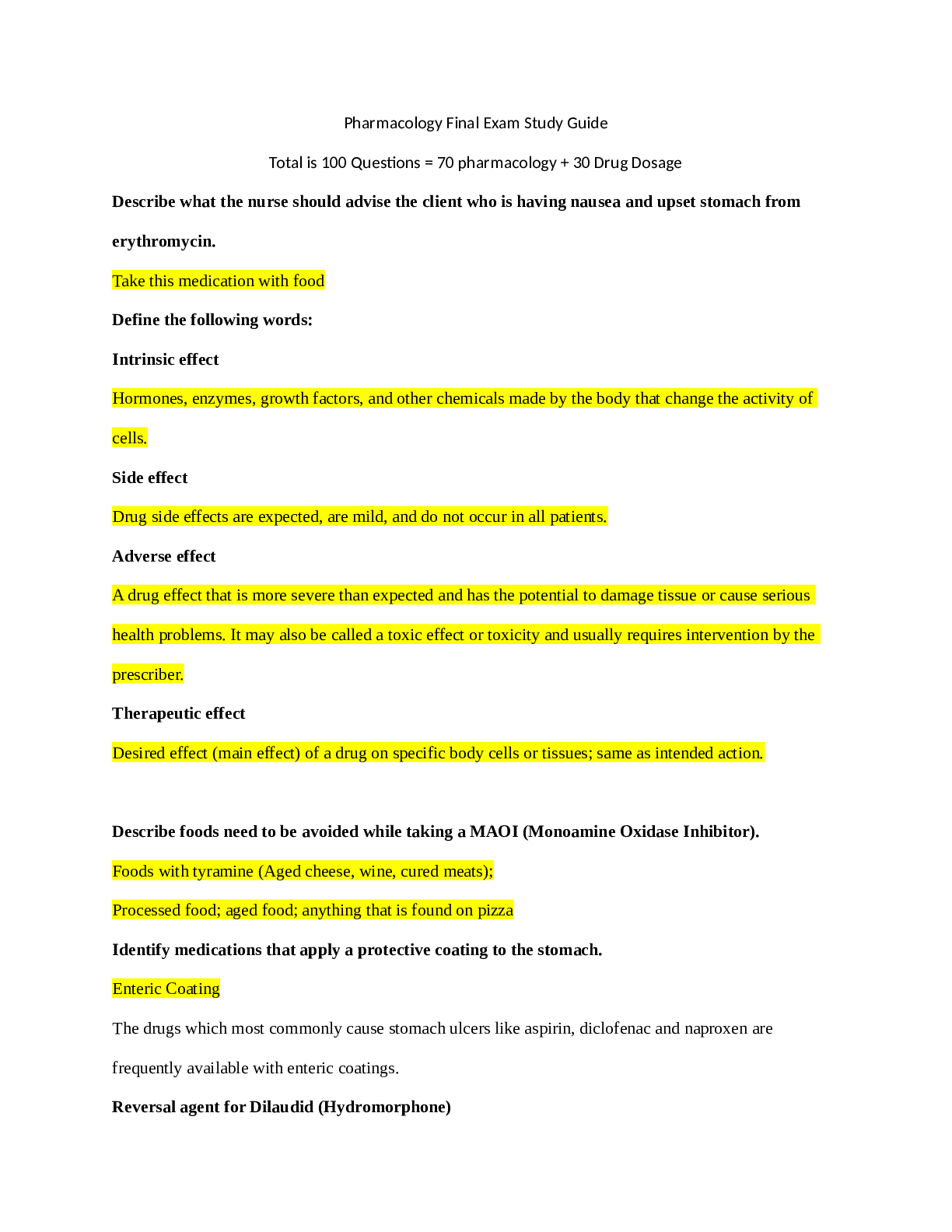
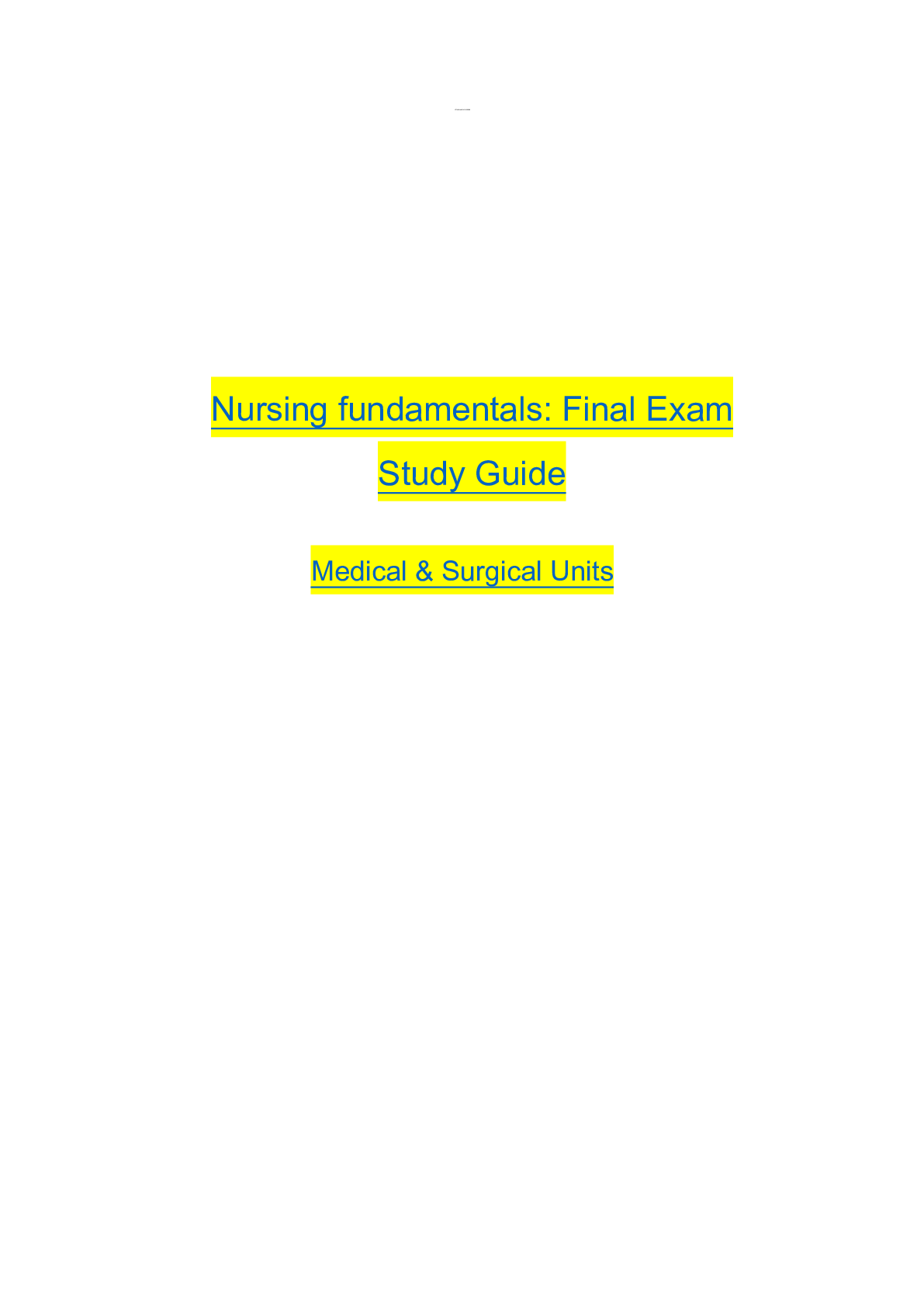


.png)

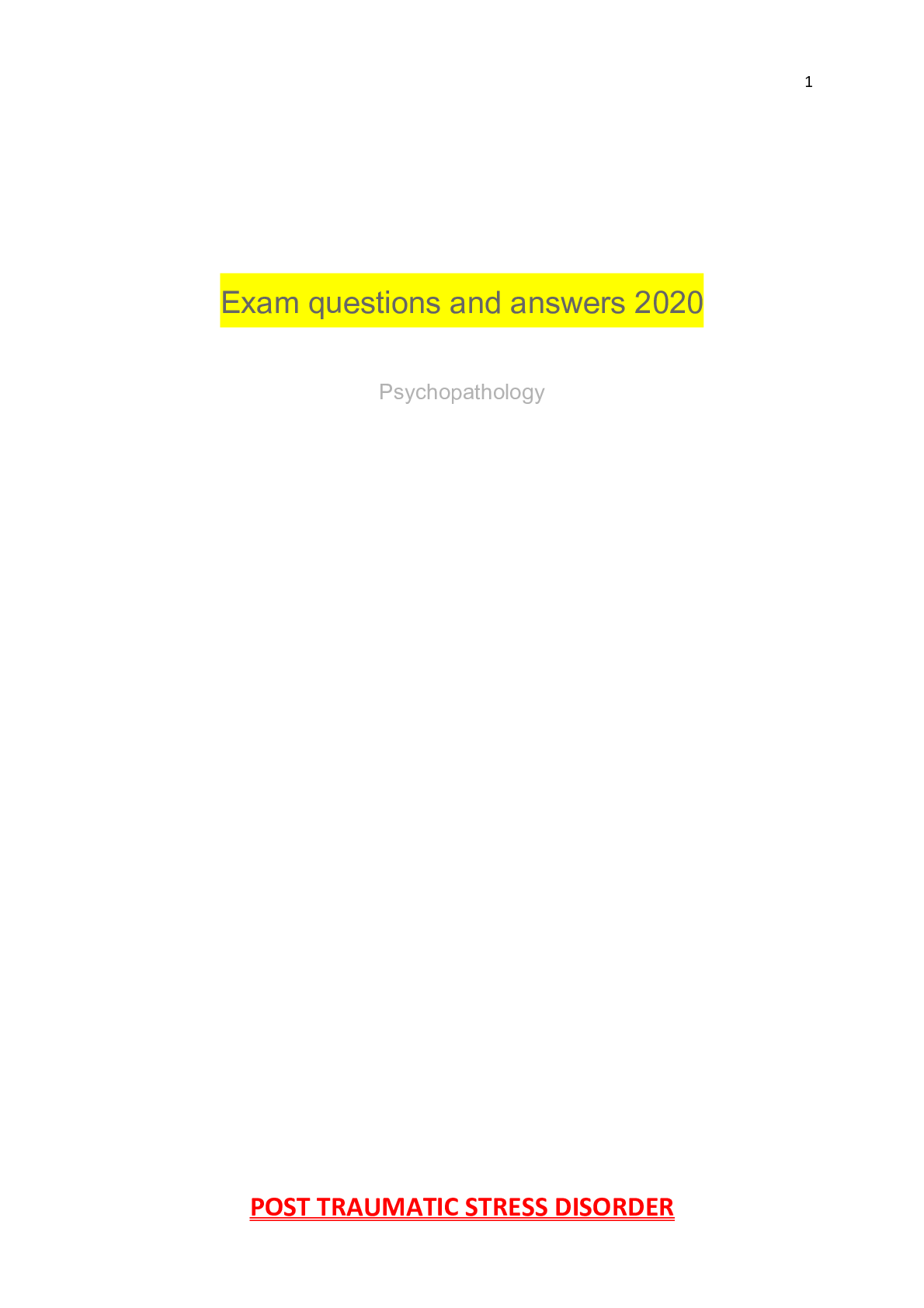
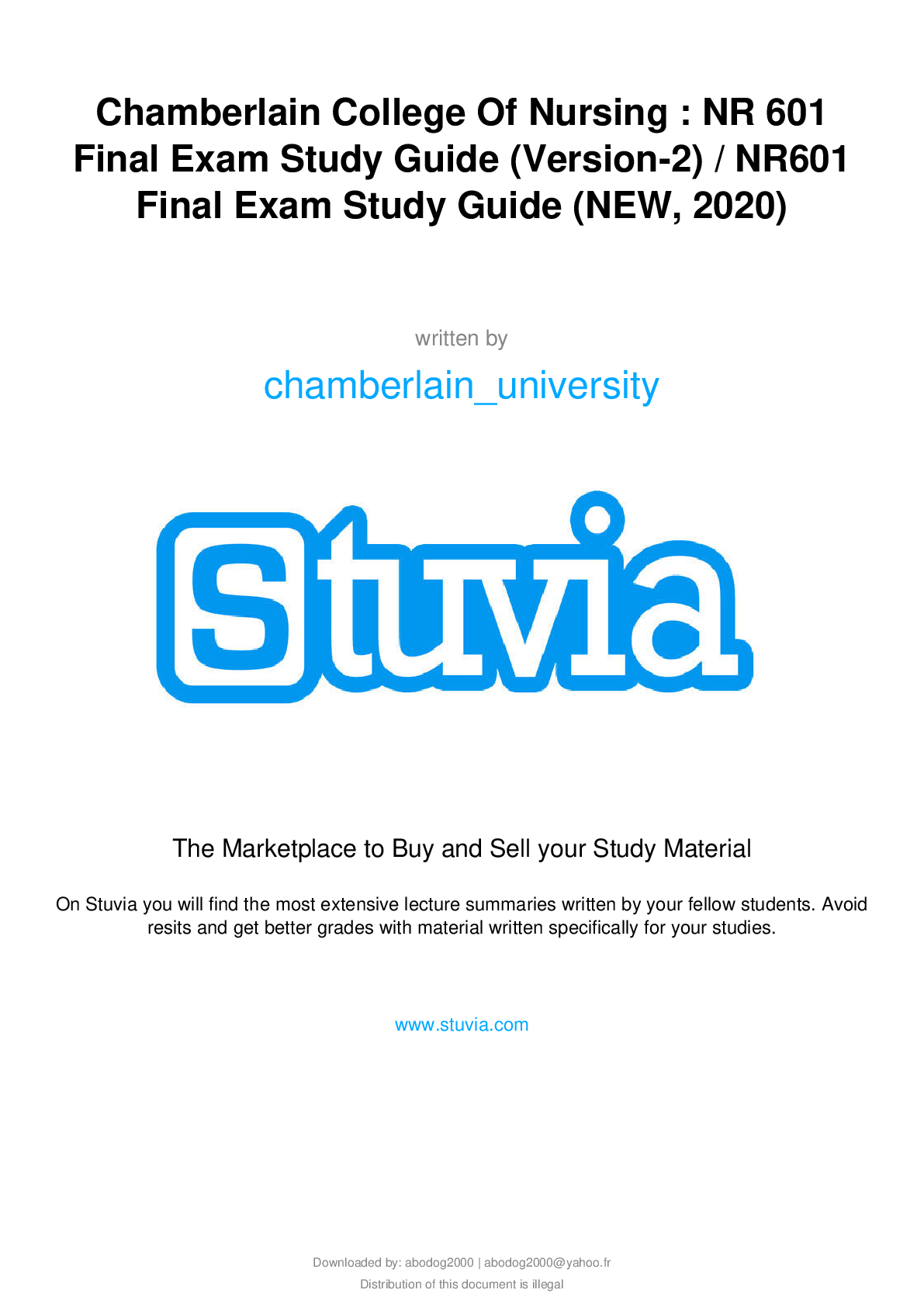
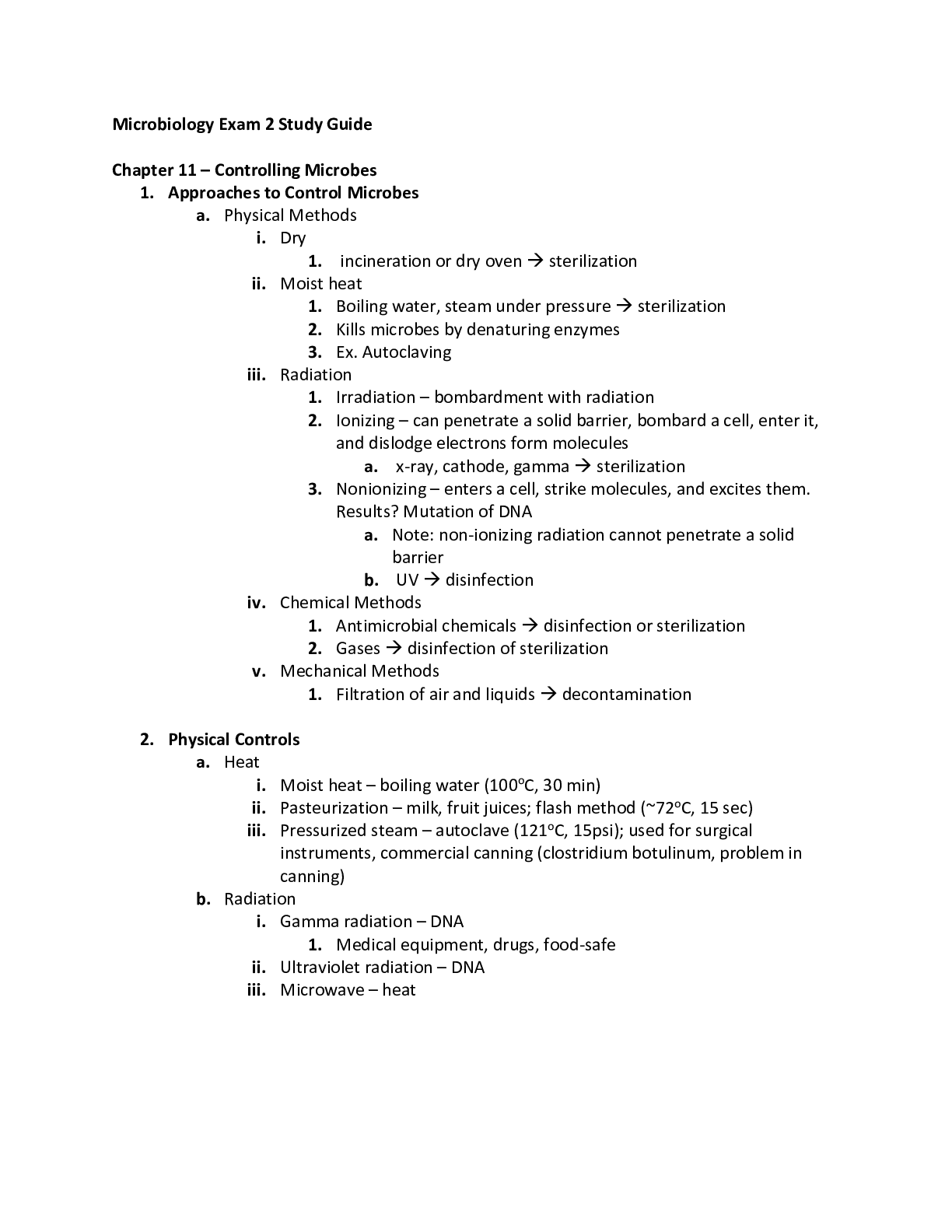


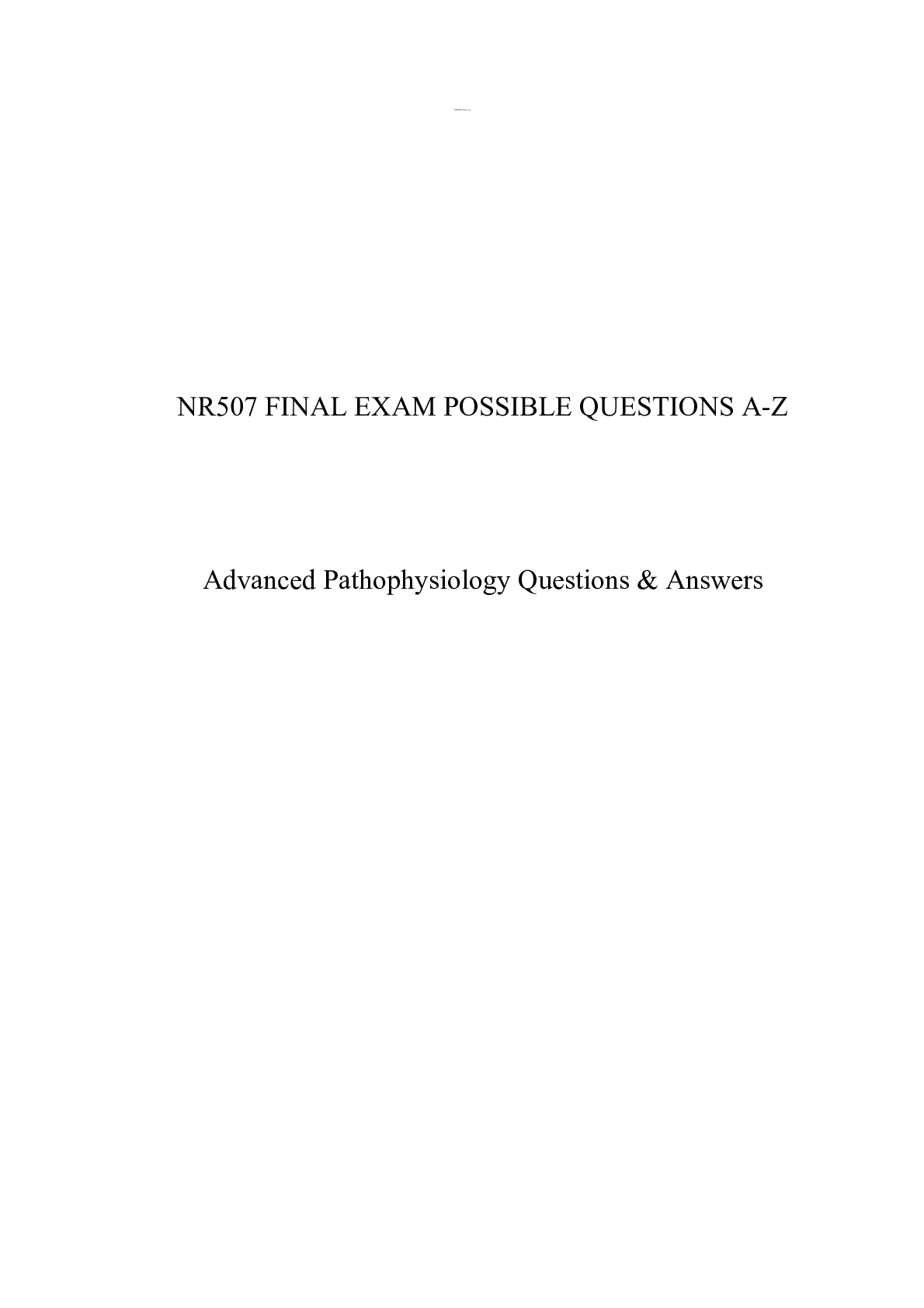
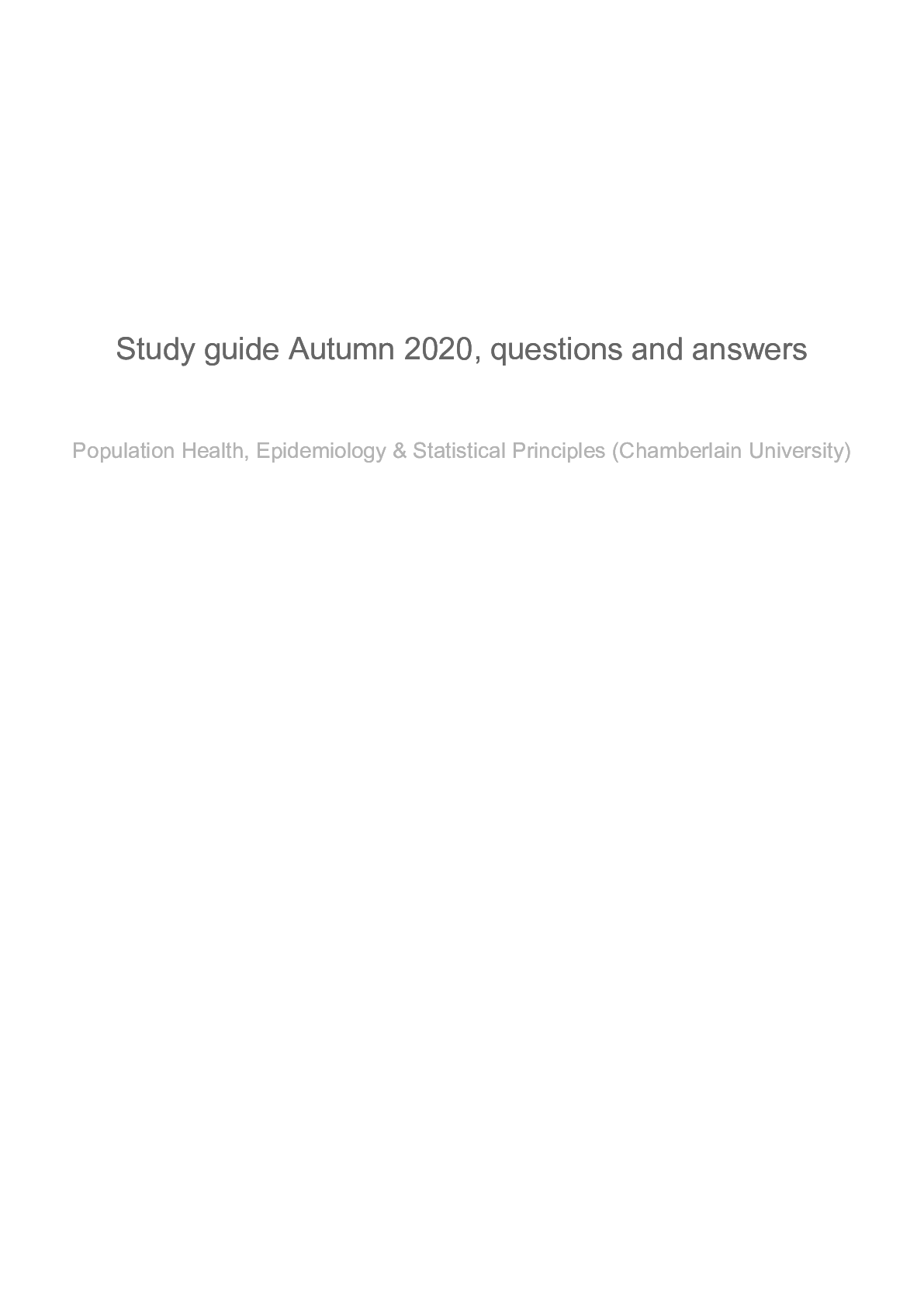

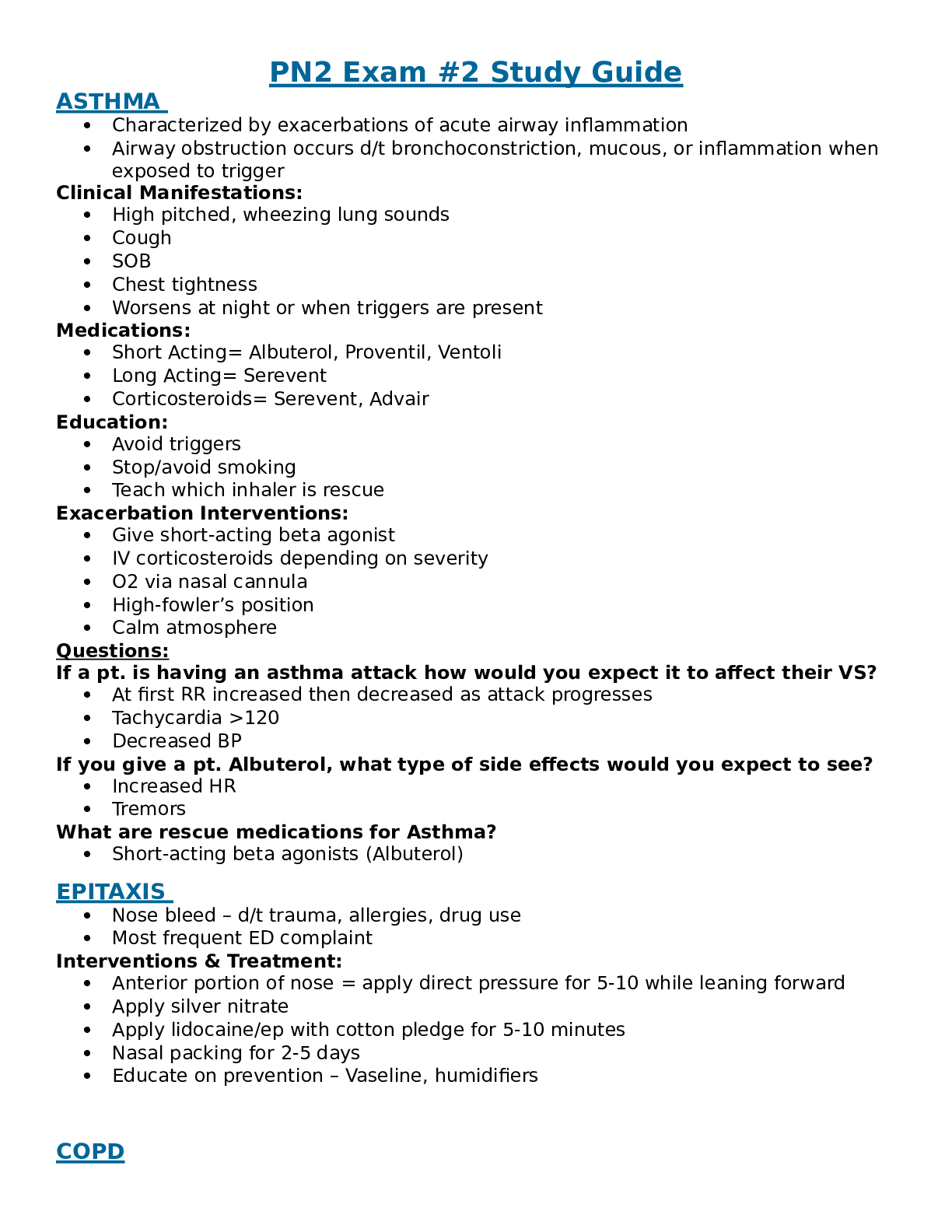
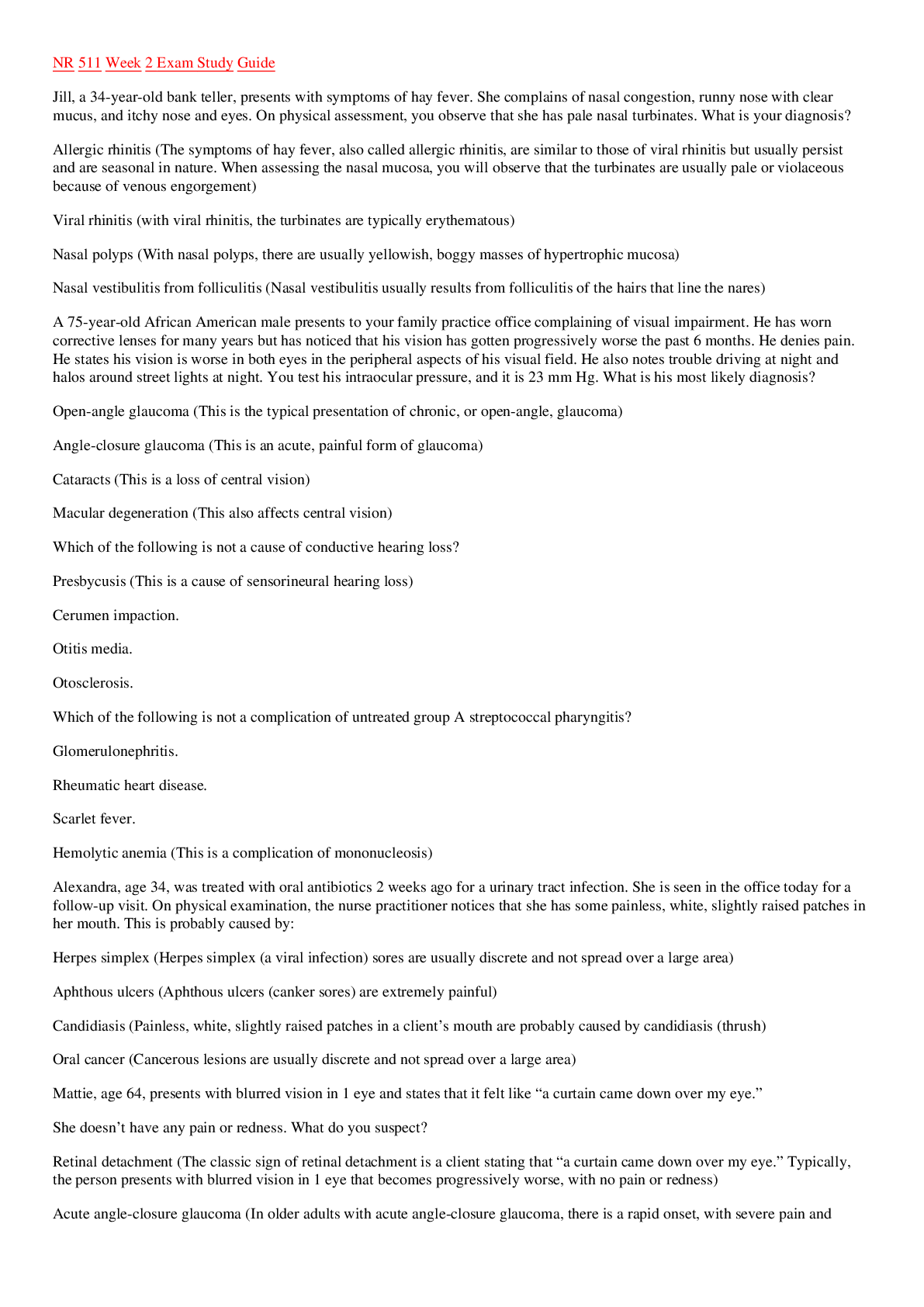

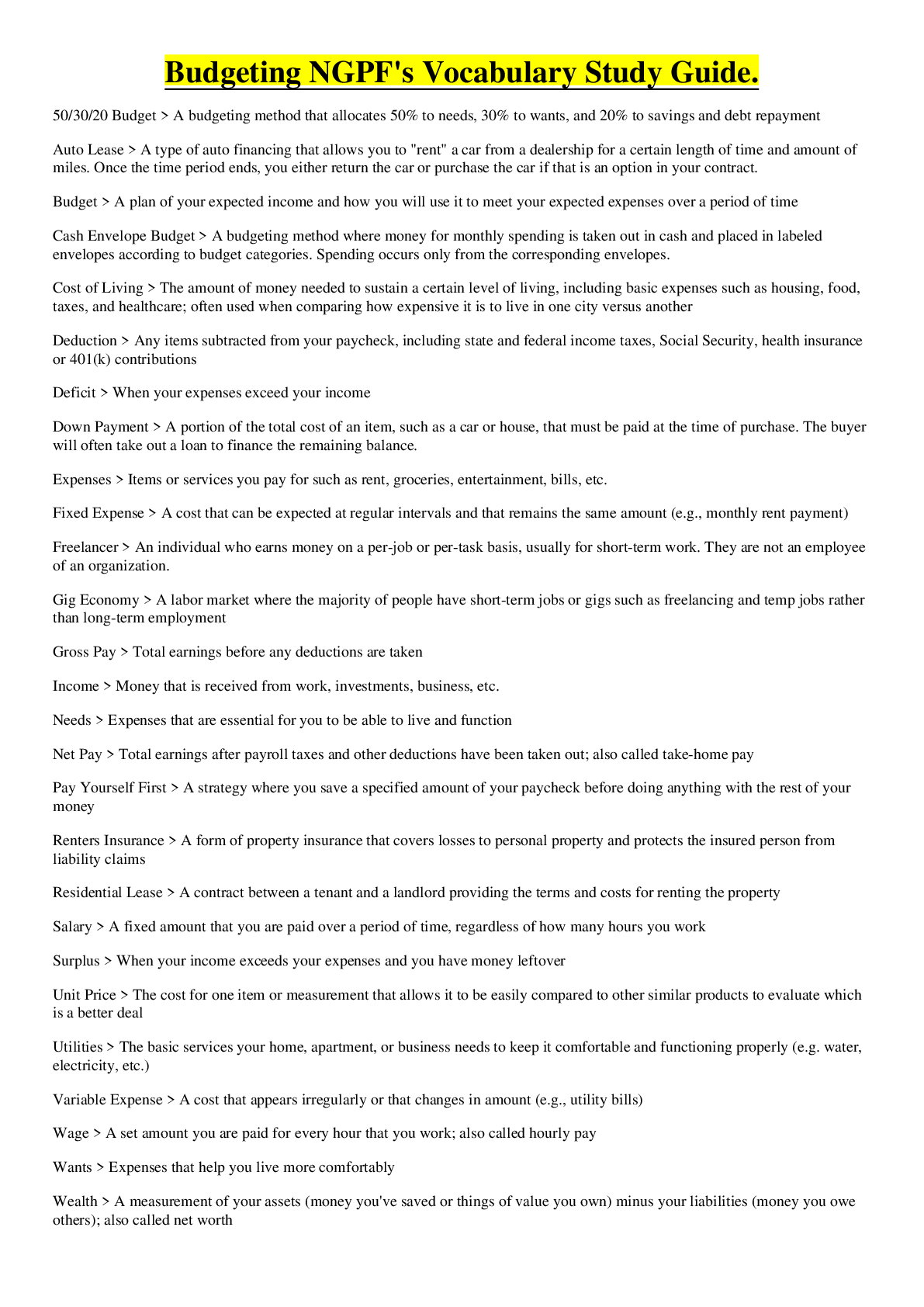

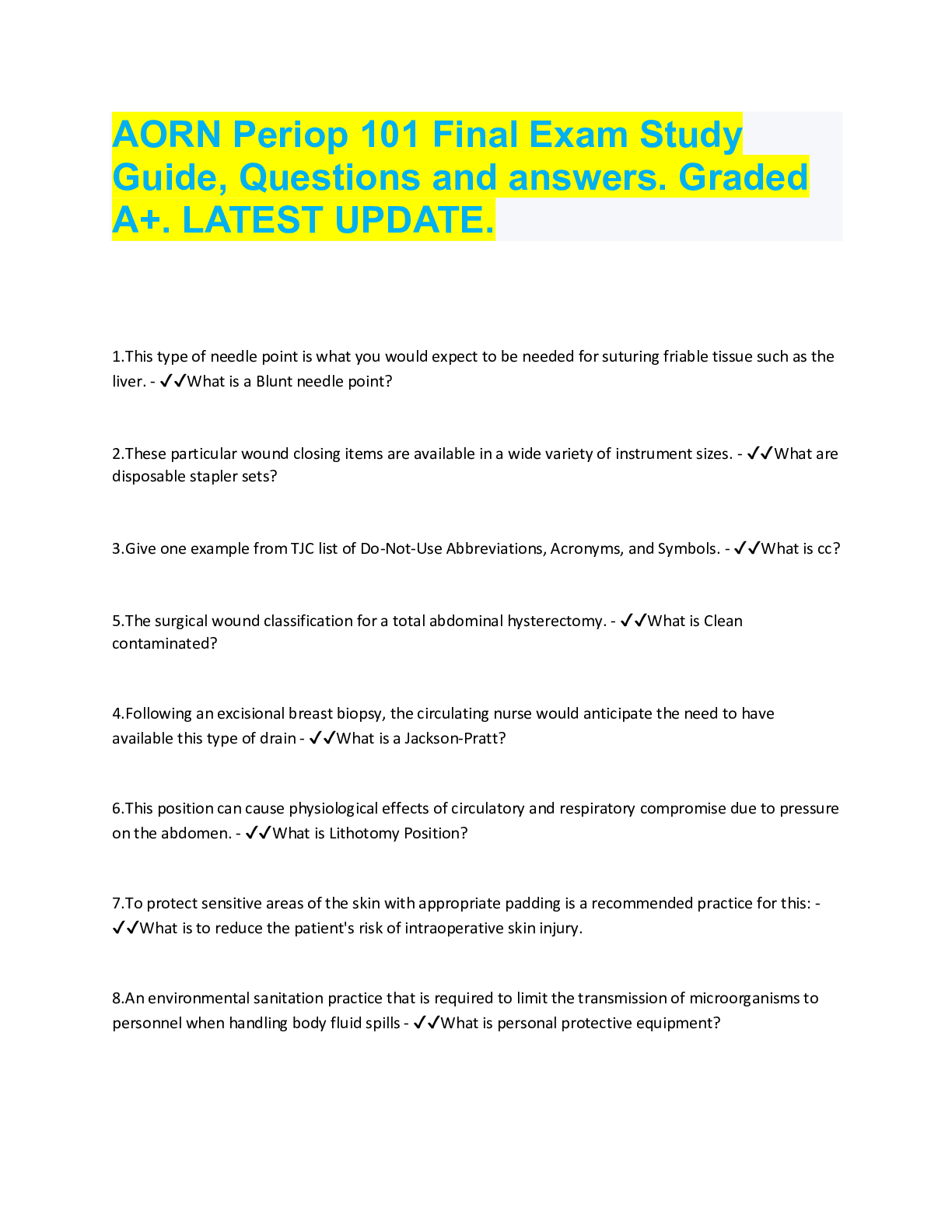
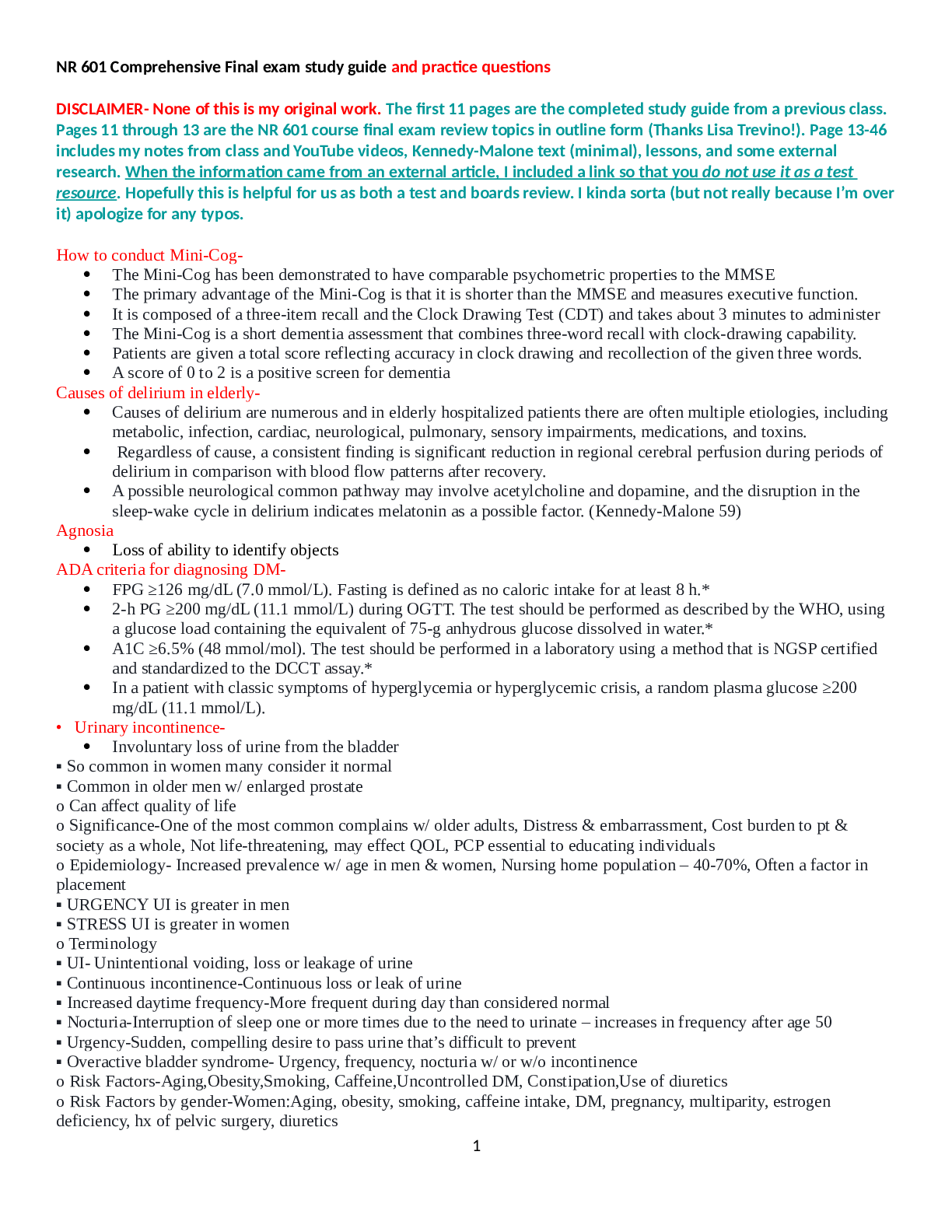



.png)

